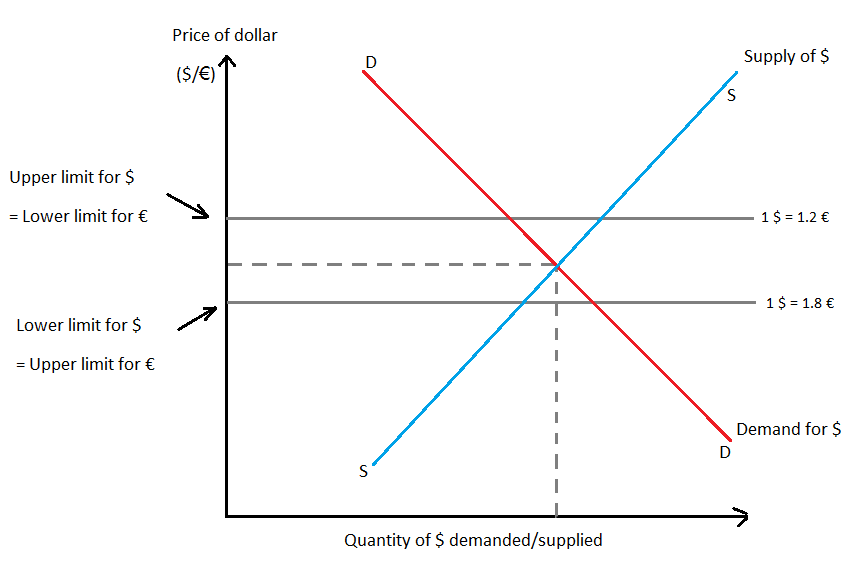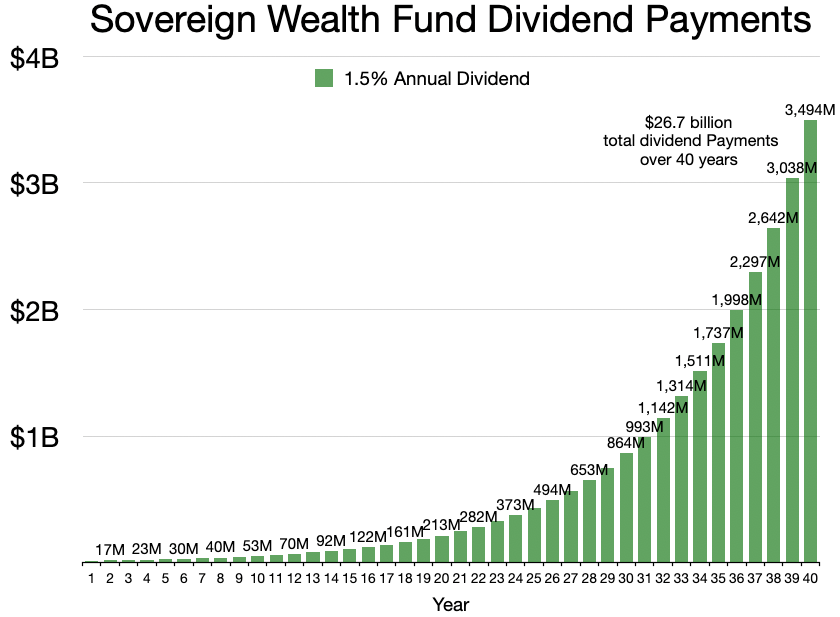|
Exchange Fund (Hong Kong)
The Exchange Fund of Hong Kong is the primary investment arm and de facto sovereign wealth fund of the Hong Kong Monetary Authority. First established in 1935 in order to provide backing to the issuance of Hong Kong dollar banknotes, over the years the role of the Fund has continually expanded to now include management of fiscal reserves, foreign currency reserves, real estate investments, and private equity. Portfolio of Funds The Exchange Fund, which oversees over HKD 4 trillion of assets as of 31 December 2019, consists of a number of different portfolios. The Exchange Fund runs three main portfolios with the Government's fiscal reserves, investing in a number of different assets (for varying risk and return levels), while separate funds set up (with funding coming from other sources) may also choose to invest in these core portfolios. In other words, portfolios indicate assets being held by the Exchange Fund, while funds indicate other funding sources. Core Portfolios * ... [...More Info...] [...Related Items...] OR: [Wikipedia] [Google] [Baidu] |
Sovereign Wealth Fund
A sovereign wealth fund (SWF), sovereign investment fund, or social wealth fund is a state-owned investment fund that invests in real and financial assets such as stocks, bonds, real estate, precious metals, or in alternative investments such as private equity fund or hedge funds. Sovereign wealth funds invest globally. Most SWFs are funded by revenues from commodity exports or from foreign-exchange reserves held by the central bank. Some sovereign wealth funds may be held by a central bank, which accumulates the funds in the course of its management of a nation's banking system; this type of fund is usually of major economic and fiscal importance. Other sovereign wealth funds are simply the state savings that are invested by various entities for the purposes of investment return, and that may not have a significant role in fiscal management. The accumulated funds may have their origin in, or may represent, foreign currency deposits, gold, special drawing rights (SDRs) and ... [...More Info...] [...Related Items...] OR: [Wikipedia] [Google] [Baidu] |
Hong Kong Monetary Authority
The Hong Kong Monetary Authority (HKMA) is Hong Kong's central bank, central banking institution. It is a government authority founded on 1 April 1993 when the Office of the Exchange Fund and the Office of the Commissioner of Banking merged. The organisation reports directly to the Financial Secretary (Hong Kong), Financial Secretary. Responsibilities The exchange fund was established and managed originally by the Currency Ordinance in 1935, now named the Exchange Fund Ordinance. Under the Ordinance, the HKMA's primary objective is to ensure the stability of the Hong Kong currency, and the banking system. It is also responsible for promoting the efficiency, integrity and development of the financial system.Noel FungGovernment power over Exchange Fund's stability role under review, The Standard (Hong Kong), The Standard, 18 November 1997 The HKMA issues Banknotes of the Hong Kong dollar, banknotes only in the denomination of ten Hong Kong dollars. The role of issuing other bankn ... [...More Info...] [...Related Items...] OR: [Wikipedia] [Google] [Baidu] |
Hong Kong Dollar
The Hong Kong dollar (, currency symbol, sign: HK$; ISO 4217, code: HKD) is the official currency of the Hong Kong, Hong Kong Special Administrative Region. It is subdivided into 100 cent (currency), cents or 1000 Mill (currency), mils. The Hong Kong Monetary Authority is the central bank, monetary authority of Hong Kong and the Hong Kong dollar. Three commercial banks are licensed by the Hong Kong Monetary Authority to issue their own banknotes for general circulation in Hong Kong. These banks, The Hongkong and Shanghai Banking Corporation, HSBC, Bank of China (Hong Kong), Bank of China, and Standard Chartered Hong Kong, Standard Chartered, issue their own designs of banknotes in denominations of HK$20, HK$50, HK$100, HK$150, HK$500, and HK$1000, with all designs being similar to one another in the same denomination of banknote. However, the HK$10 banknote and all coins are issued by the Government of Hong Kong. As of April 2019, the Hong Kong dollar is the ninth Template:Mo ... [...More Info...] [...Related Items...] OR: [Wikipedia] [Google] [Baidu] |
Private Equity
In the field of finance, the term private equity (PE) refers to investment funds, usually limited partnerships (LP), which buy and restructure financially weak companies that produce goods and provide services. A private-equity fund is both a type of ownership of assets ( financial equity) and is a class of assets (debt securities and equity securities), which function as modes of financial management for operating private companies that are not publicly traded in a stock exchange. Private-equity capital is invested into a target company either by an investment management company (private equity firm), or by a venture capital fund, or by an angel investor; each category of investor has specific financial goals, management preferences, and investment strategies for profiting from their investments. Each category of investor provides working capital to the target company to finance the expansion of the company with the development of new products and services, the restructuring ... [...More Info...] [...Related Items...] OR: [Wikipedia] [Google] [Baidu] |
US Dollar
The United States dollar (symbol: $; code: USD; also abbreviated US$ or U.S. Dollar, to distinguish it from other dollar-denominated currencies; referred to as the dollar, U.S. dollar, American dollar, or colloquially buck) is the official currency of the United States and several other countries. The Coinage Act of 1792 introduced the U.S. dollar at par with the Spanish silver dollar, divided it into 100 cents, and authorized the minting of coins denominated in dollars and cents. U.S. banknotes are issued in the form of Federal Reserve Notes, popularly called greenbacks due to their predominantly green color. The monetary policy of the United States is conducted by the Federal Reserve System, which acts as the nation's central bank. The U.S. dollar was originally defined under a bimetallic standard of (0.7735 troy ounces) fine silver or, from 1837, fine gold, or $20.67 per troy ounce. The Gold Standard Act of 1900 linked the dollar solely to gold. From 1934, its equi ... [...More Info...] [...Related Items...] OR: [Wikipedia] [Google] [Baidu] |
Currency Peg
A fixed exchange rate, often called a pegged exchange rate, is a type of exchange rate regime in which a currency's value is fixed or pegged by a monetary authority against the value of another currency, a basket of other currencies, or another measure of value, such as gold. There are benefits and risks to using a fixed exchange rate system. A fixed exchange rate is typically used to stabilize the exchange rate of a currency by directly fixing its value in a predetermined ratio to a different, more stable, or more internationally prevalent currency (or currencies) to which the currency is pegged. In doing so, the exchange rate between the currency and its peg does not change based on market conditions, unlike in a floating (flexible) exchange regime. This makes trade and investments between the two currency areas easier and more predictable and is especially useful for small economies that borrow primarily in foreign currency and in which external trade forms a large part of the ... [...More Info...] [...Related Items...] OR: [Wikipedia] [Google] [Baidu] |
Handover Of Hong Kong
Sovereignty of Hong Kong was transferred from the United Kingdom to the China, People's Republic of China (PRC) at midnight on 1 July 1997. This event ended 156 years of British rule in the British Hong Kong, former colony. Hong Kong was established as a special administrative region of China (SAR) for 50 years, maintaining its own economic and governing systems from those of mainland China during this time, although influence from the Government of China, central government in Beijing increased after the passing of the Hong Kong national security law in 2020. Hong Kong had been a colony of the British Empire since 1841, except for four years of Japanese occupation of Hong Kong, Japanese occupation from 1941 to 1945. After the First Opium War, its territory was expanded on two occasions; in 1860 with the addition of Kowloon Peninsula and Stonecutters Island, and again in 1898, when Britain obtained Convention for the Extension of Hong Kong Territory, a 99-year lease for the New ... [...More Info...] [...Related Items...] OR: [Wikipedia] [Google] [Baidu] |
Hong Kong Exchanges And Clearing
Hong Kong Exchanges and Clearing Limited (HKEX; , also 香港交易所 or 港交所 ) operates a range of equity, commodity, fixed income and currency markets through its wholly owned subsidiaries The Stock Exchange of Hong Kong Limited (SEHK), Hong Kong Futures Exchange Limited (HKFE) and London Metal Exchange (LME). With a total market capitalisation of over US$6 trillion as of 2021, HKEX is the sixth largest stock exchange by market capitalization of listed companies. As of the end of December 2020, there were 2,538 companies listed on HKEX's securities market. HKEX has been the world's top listing venue in terms of IPO funds raised in seven of the past 11 years. The Group also operates four clearing houses in Hong Kong: Hong Kong Securities Clearing Company Limited (HKSCC), HKFE Clearing Corporation Limited (HKCC), the SEHK Options Clearing House Limited (SEOCH) and OTC Clearing Hong Kong Limited (OTC Clear). HKSCC, HKCC and SEOCH provide integrated clearing, settlement, ... [...More Info...] [...Related Items...] OR: [Wikipedia] [Google] [Baidu] |
Sovereign Wealth Funds
A sovereign wealth fund (SWF), sovereign investment fund, or social wealth fund is a state-owned investment fund that invests in real and financial assets such as stocks, bonds, real estate, precious metals, or in alternative investments such as private equity fund or hedge funds. Sovereign wealth funds invest globally. Most SWFs are funded by revenues from commodity exports or from foreign-exchange reserves held by the central bank. Some sovereign wealth funds may be held by a central bank, which accumulates the funds in the course of its management of a nation's banking system; this type of fund is usually of major economic and fiscal importance. Other sovereign wealth funds are simply the state savings that are invested by various entities for the purposes of investment return, and that may not have a significant role in fiscal management. The accumulated funds may have their origin in, or may represent, foreign currency deposits, gold, special drawing rights (SDRs) and In ... [...More Info...] [...Related Items...] OR: [Wikipedia] [Google] [Baidu] |







